
Find Help
More Items From Ergsy search
-

Is there a difference in screen time impact on sleep between weekdays and weekends?
Relevance: 100%
-

Does screen time impact REM sleep?
Relevance: 49%
-
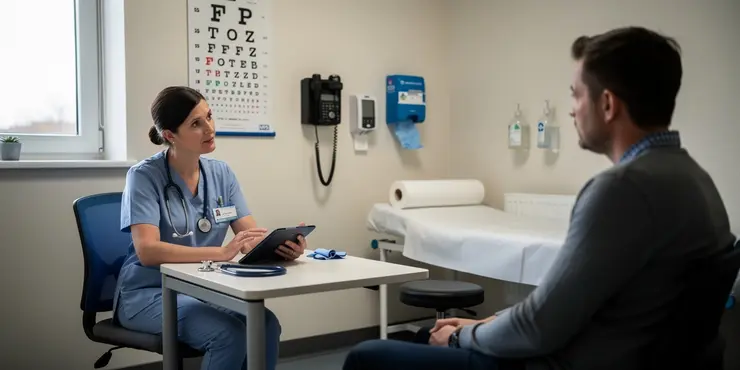
Study Shows Link Between Screen Time and Sleep Quality
Relevance: 46%
-

Does screen time affect both sleep onset and sleep maintenance?
Relevance: 41%
-
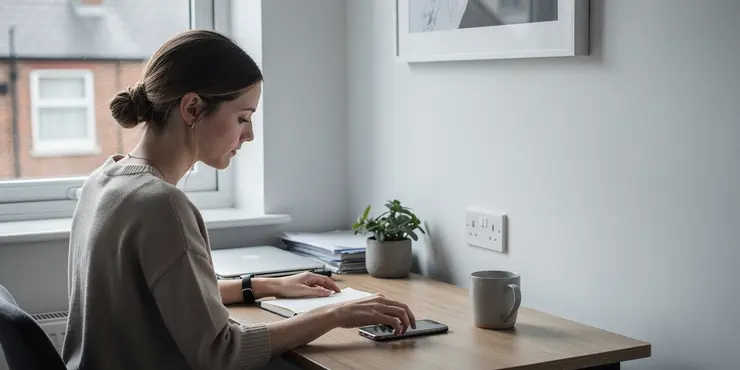
How does screen time affect sleep quality?
Relevance: 40%
-
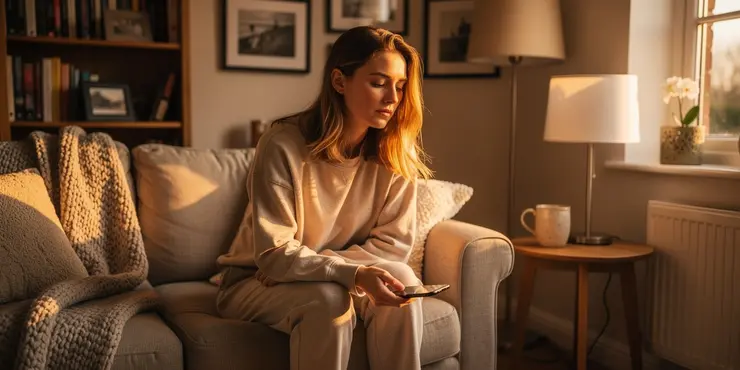
Can reducing screen time improve sleep quality?
Relevance: 40%
-
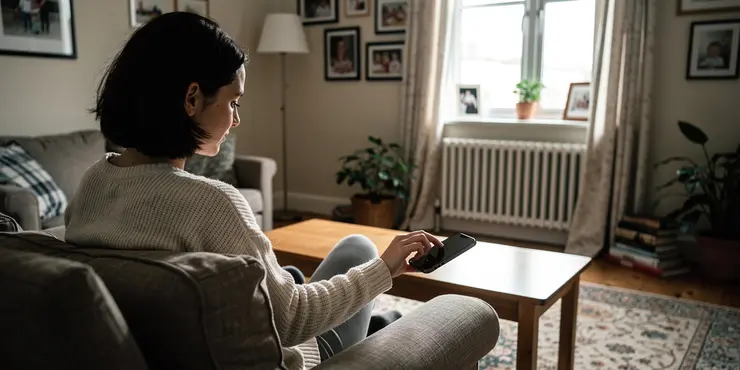
Are there any screen time guidelines recommended for improving sleep?
Relevance: 39%
-

Are food banks open on weekends?
Relevance: 39%
-
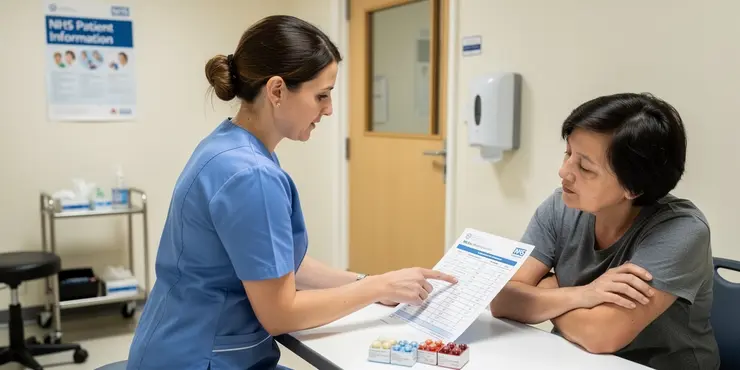
What are some tips for reducing screen time to improve sleep?
Relevance: 38%
-
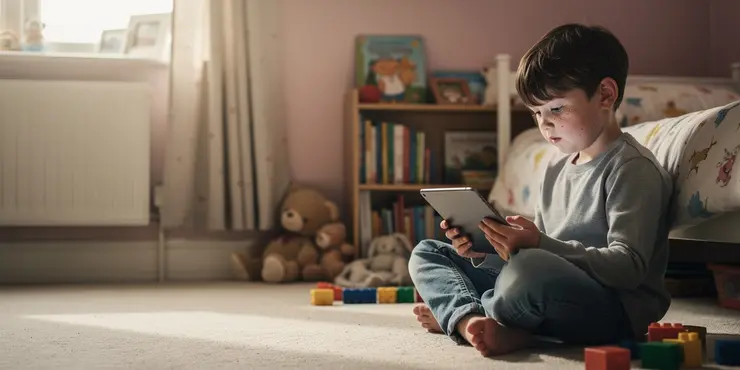
Are children more affected by screen time in relation to sleep than adults?
Relevance: 38%
-
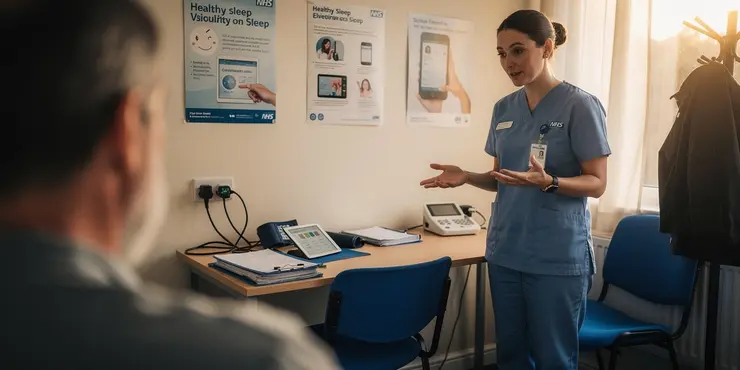
What is the main finding of the study linking screen time to sleep quality?
Relevance: 37%
-
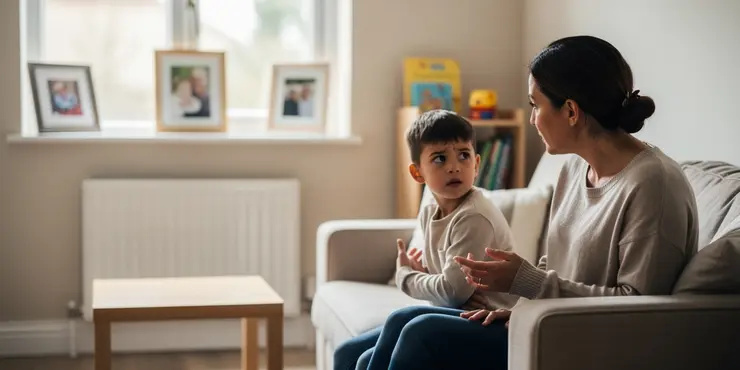
What is the role of parental monitoring in children's screen time and sleep?
Relevance: 37%
-
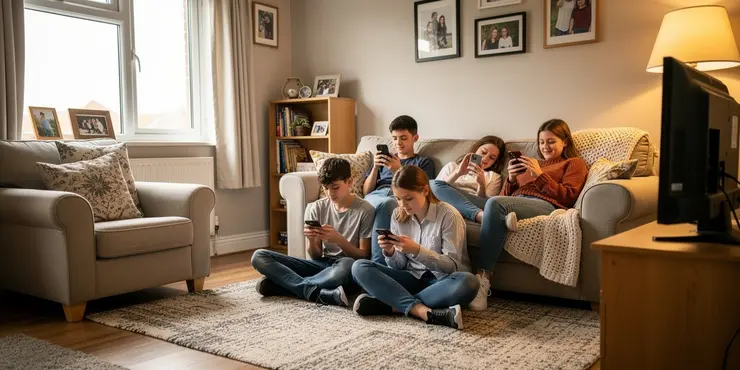
What demographic showed the most significant change in sleep quality due to screen time?
Relevance: 35%
-
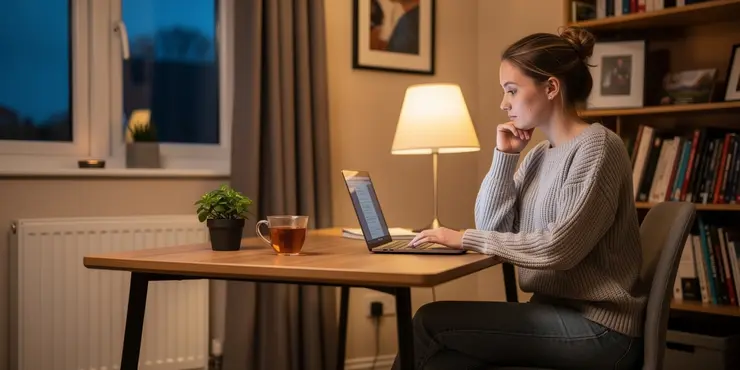
Is blue light from screens a factor in affecting sleep quality?
Relevance: 31%
-
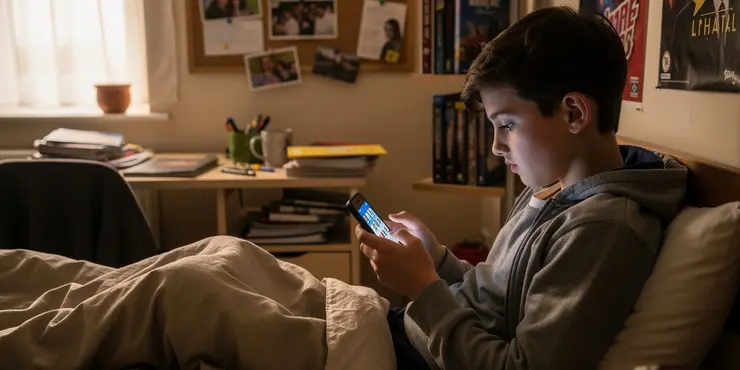
How does screen time before bed specifically affect adolescents?
Relevance: 30%
-

Are live-in caregivers available on weekends and holidays?
Relevance: 29%
-
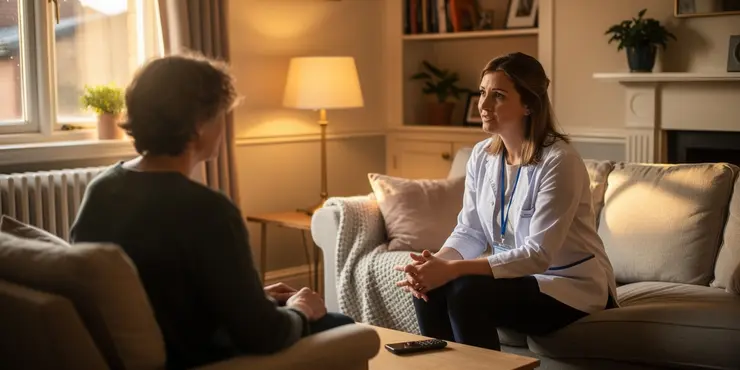
Top Tips to Help You Get a Good Nights Sleep
Relevance: 27%
-
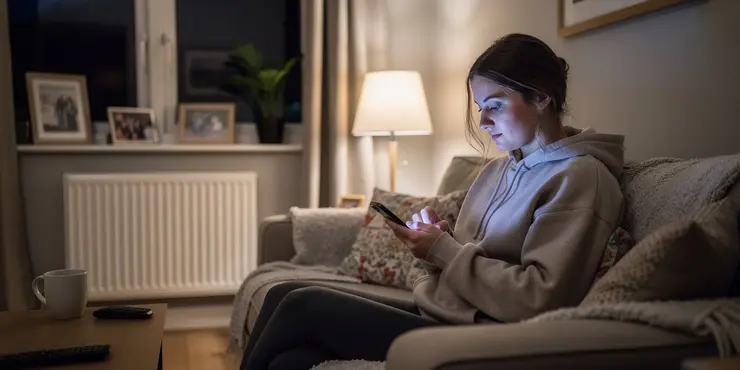
What are some long-term effects of poor sleep quality linked to screen time?
Relevance: 26%
-
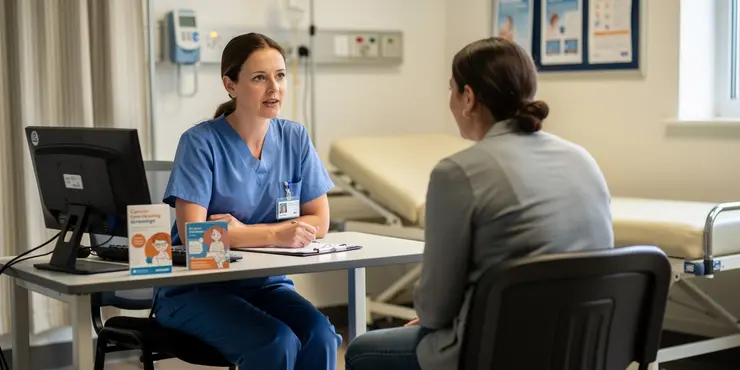
Can lifestyle changes impact the efficacy of cancer screening?
Relevance: 24%
-
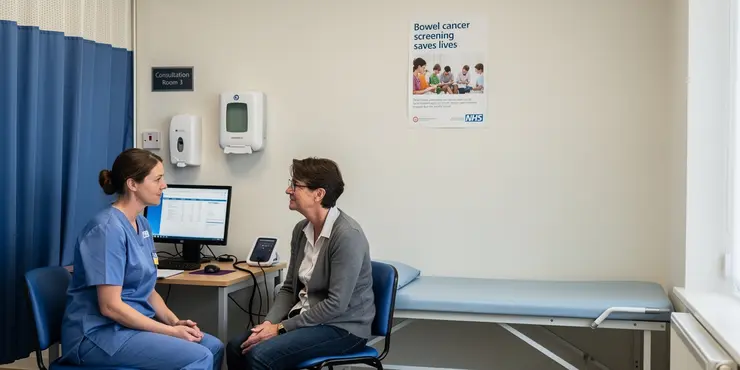
How does increased screening impact bowel cancer statistics?
Relevance: 22%
-

What lifestyle changes can help manage sleep apnea?
Relevance: 21%
-
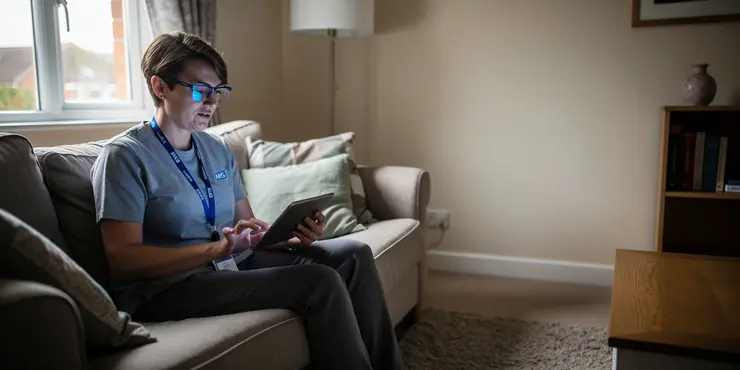
Do mitigation strategies like blue light glasses help improve sleep quality?
Relevance: 21%
-
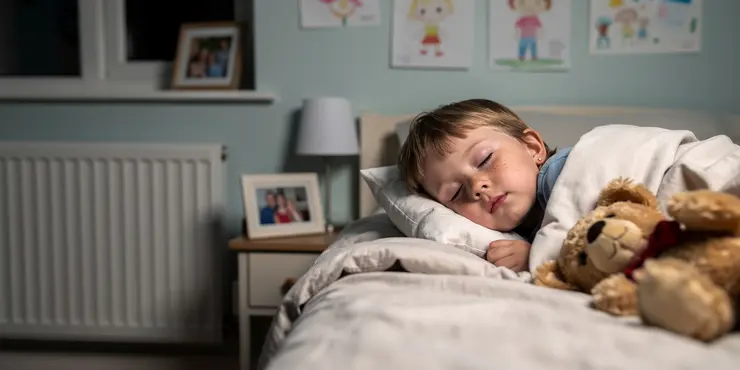
The Importance of Sleep for All Ages
Relevance: 20%
-
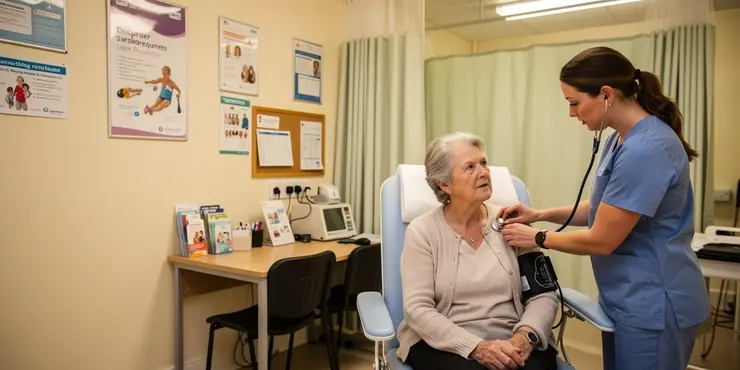
Is it safe to sleep after a concussion?
Relevance: 20%
-
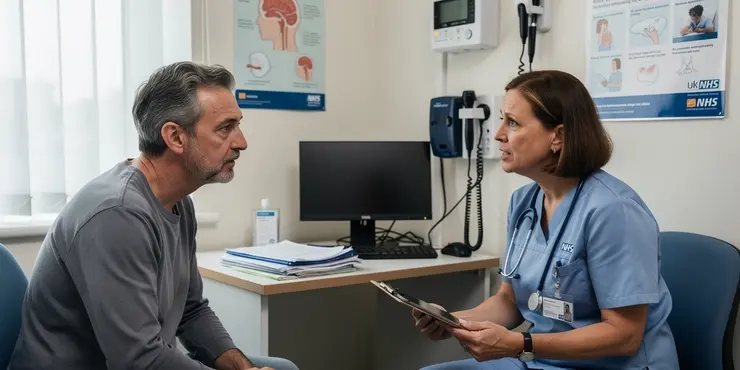
What is sleep apnea?
Relevance: 19%
-
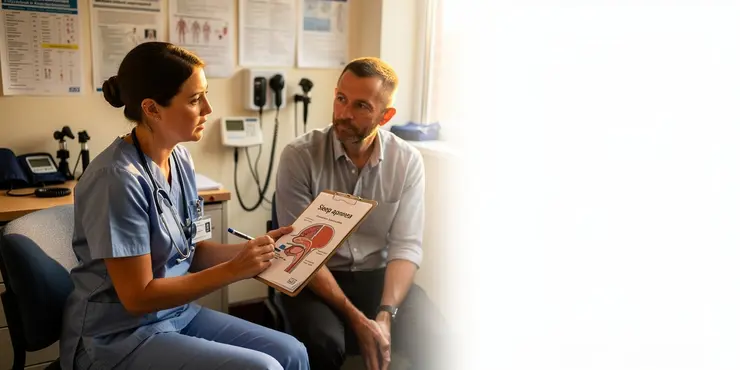
What is sleep apnoea?
Relevance: 19%
-
Will changing my surgery date impact my waiting time?
Relevance: 18%
-
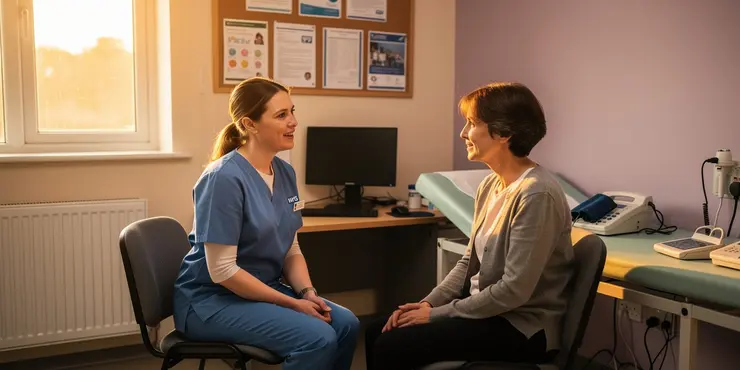
Why is sleep apnea dangerous?
Relevance: 18%
-
How does sleep quality relate to menopause symptoms?
Relevance: 18%
-

Can alcohol worsen sleep apnea?
Relevance: 18%
-
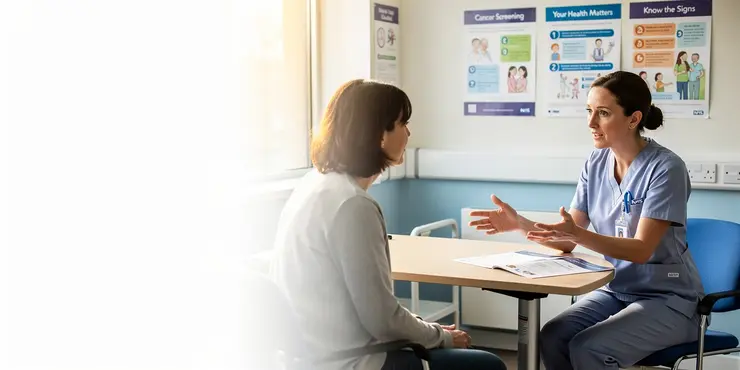
What is cancer screening?
Relevance: 18%
-
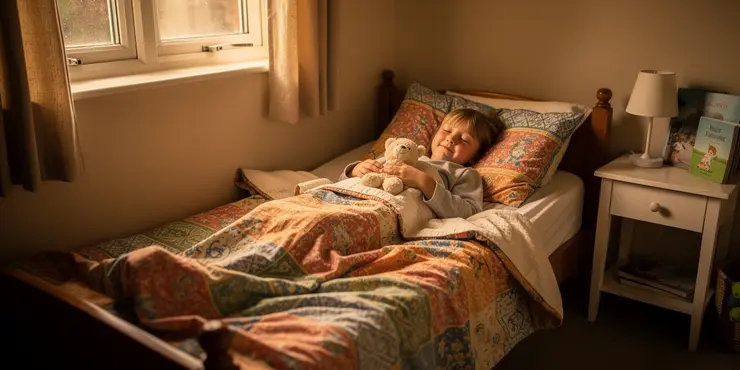
Can children have sleep apnea?
Relevance: 18%
-
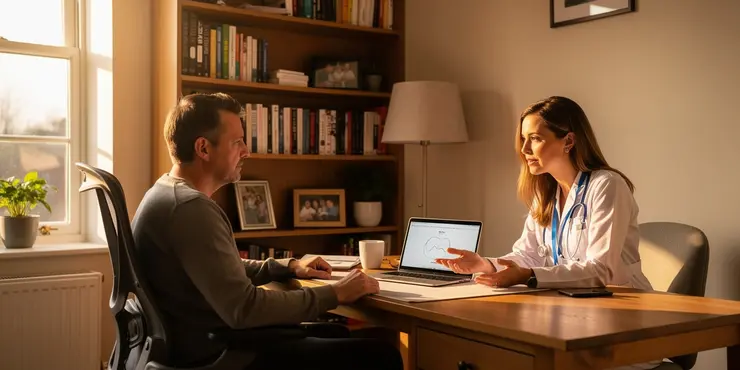
How is sleep apnea diagnosed?
Relevance: 18%
-

Are there eco-friendly mosquito screen options?
Relevance: 18%
-
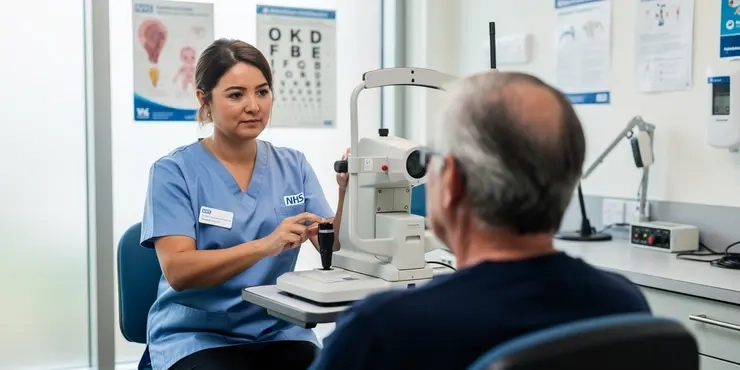
Derbyshire Diabetic Eye Screening - Diabetic Eye Screening
Relevance: 18%
-
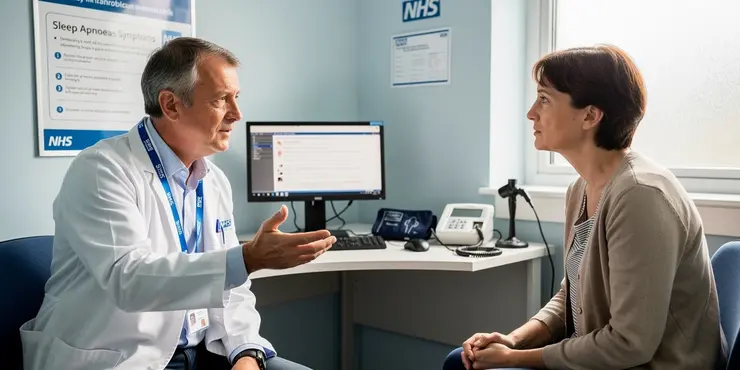
What are common symptoms of sleep apnea?
Relevance: 18%
-

What are risk factors for developing sleep apnea?
Relevance: 18%
-
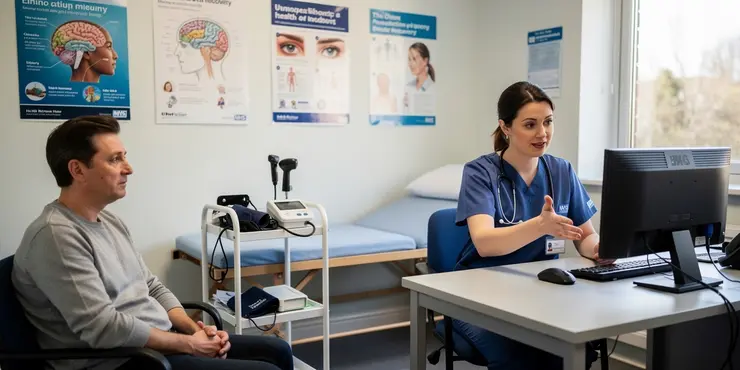
Should people with a concussion avoid screens and technology?
Relevance: 18%
-
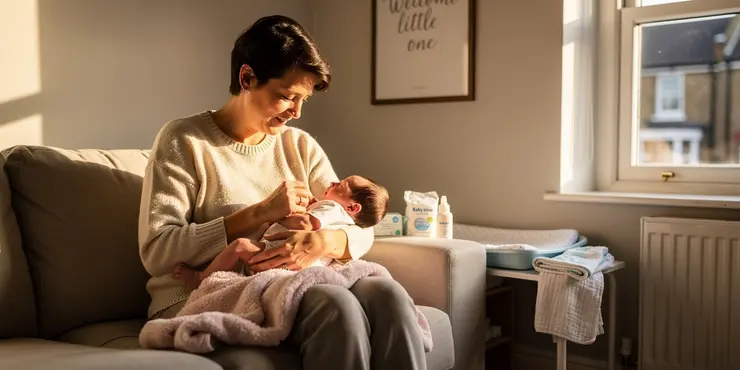
Are baby sleep pillows safe?
Relevance: 18%
-
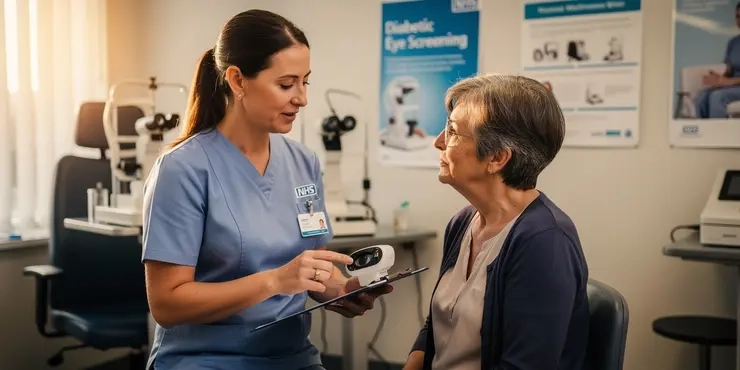
Derbyshire Diabetic Eye Screening - Your Screening Appointment
Relevance: 17%
Introduction
In an increasingly digital world, concerns about screen time and its impact on sleep are prevalent. The difference in screen time's effects on sleep between weekdays and weekends is a topic worth exploring, particularly as it may affect sleep quality and overall health. This is relevant to individuals in the UK and worldwide, given the pervasive use of smartphones, computers, and tablets.
Screen Time and Sleep: The Basics
Screen time, particularly before bed, is known to affect sleep quality due to the blue light emitted by screens. This light can interfere with the production of melatonin, a hormone that regulates sleep. Subsequently, this interference can lead to difficulty in falling asleep and a decrease in sleep quality. Moreover, the engaging content on screens can also delay bedtime, reducing the overall sleep duration.
Weekdays vs. Weekends: A Comparison
On weekdays, structured routines typically dictate sleep schedules, often resulting in people prioritizing rest due to early commitments such as work or school. Consequently, the impact of screen time on sleep might manifest differently compared to weekends, when these constraints are relaxed. During the weekend, people may indulge in more screen time, contributing to shifts in their sleep patterns.
The Impact of Screen Time on Weekday Sleep
During the weekdays, people in the UK tend to adhere to more rigorous schedules. They may experience restricted screen time at night due to early starts the next day. Nevertheless, excessive screen use in the evening can still impact sleep quality, shortening duration and increasing daytime fatigue. Reduced sleep during the week due to screen exposure can contribute to a sleep debt, which many try to "pay off" during the weekend.
The Weekend Effect on Sleep and Screen Time
On weekends, individuals often allow themselves more leisure time, which can lead to increased screen time in the evenings and nights. This extended exposure can lead to a delayed sleep schedule, often referred to as "social jetlag." In the UK, people may sleep later and wake up later on weekends, perturbing the regular circadian rhythm established during the week. As a result, this can impact sleep quality, causing a shift to poorer sleep patterns.
Optimizing Screen Time for Better Sleep
To mitigate the negative effects of screen time on sleep, it is advisable for individuals to limit screen exposure, especially before bedtime. Utilizing night mode features on devices, practicing good sleep hygiene, and maintaining consistent sleep schedules, even during weekends, can help. This consistency promotes better sleep quality and healthier sleep patterns for weekdays and weekends alike.
Conclusion
The impact of screen time on sleep can differ between weekdays and weekends due to varying routines and habits. By being mindful of screen usage and practicing good sleep hygiene, individuals can minimize its negative effects and maintain a healthy sleep schedule. Understanding this interplay is particularly valuable for those aiming to improve their sleep health in an era dominated by digital devices.
Introduction
Today, people use screens a lot. This can hurt our sleep. It's important to know how screens affect our sleep during the week and on weekends. This is important for people in the UK and everywhere, because many people use phones, computers, and tablets.
Screen Time and Sleep: The Basics
Watching screens before bed can make it hard to sleep well. Screens give off blue light. This light can stop us from making melatonin, a special chemical that helps us sleep. When this happens, we may find it hard to fall asleep. Also, fun stuff on screens can make us stay up later and sleep less.
Weekdays vs. Weekends: A Comparison
On weekdays, people often have plans like work or school, so they try to sleep at regular times. This might change how screens affect sleep compared to weekends. On weekends, people have more free time and might watch more screens, which can change their sleep times.
The Impact of Screen Time on Weekday Sleep
During the week, people in the UK often have busy days. They might watch fewer screens at night because they need to get up early. But if they watch a lot of screens, it can still make their sleep worse. They might not sleep enough and feel tired during the day. This can add up and make them try to catch up on sleep during the weekend.
The Weekend Effect on Sleep and Screen Time
On weekends, people often have more fun time, which can mean more screen time. This can make them go to bed and wake up later, which is like having jetlag. In the UK, people might sleep in late on weekends, changing their body's normal sleep pattern. This can make sleep not as good.
Optimizing Screen Time for Better Sleep
To help sleep well, people should watch fewer screens before bed. Using night mode on devices, having good sleep habits, and keeping the same sleep times every day, even on weekends, can help a lot. This helps you sleep better all week.
Conclusion
Screens affect our sleep differently on weekdays and weekends because of our different habits. By using screens wisely and having good sleep habits, we can sleep better. This is important for people who want better sleep in a world full of digital devices.
Frequently Asked Questions
Does screen time affect sleep differently during weekdays compared to weekends?
Yes, screen time can affect sleep differently between weekdays and weekends due to variations in daily routines and schedules.
Why might weekend screen time impact sleep differently than on weekdays?
On weekends, people may have more flexible schedules, potentially leading to increased screen time or altered sleep patterns.
Are there any studies comparing screen time's effect on sleep during weekdays and weekends?
Some studies suggest differences in screen time patterns between weekdays and weekends, which may impact sleep due to variations in routine.
Do people generally spend more time on screens during weekends?
Many people tend to spend more time on screens during weekends due to increased leisure time, which could affect sleep patterns.
How can increased screen time on weekends affect sleep?
Increased screen time on weekends can disrupt circadian rhythms and delay sleep onset, making it harder to fall asleep at a consistent time.
Does the type of screen use (work vs. leisure) differ between weekdays and weekends?
Yes, screen use is often more work-related during weekdays and more leisure-oriented during weekends, potentially impacting sleep differently.
How does blue light from screens impact sleep on weekends?
Blue light exposure from screens can inhibit melatonin production, potentially affecting sleep more during weekends if screen time increases.
Can altered sleep patterns on weekends affect weekday sleep?
Yes, irregular sleep patterns over the weekend can lead to difficulties in adjusting back to weekday schedules, impacting sleep quality.
What are some ways to manage screen time for better sleep on weekends?
Limiting screen exposure before bedtime and maintaining a consistent sleep schedule can help mitigate sleep disruptions on weekends.
Are children more affected by weekend screen time than adults?
Children may be more sensitive to changes in screen time on weekends, affecting their sleep more significantly than adults.
Can social activities on screens impact weekend sleep differently than weekday sleep?
Yes, engaging in social activities online is often more common during weekends and can delay bedtime, affecting sleep duration and quality.
Do people generally wake up later on weekends due to screen time?
Increased leisure activities and screen time on weekends often result in later bedtimes, leading many to wake up later than on weekdays.
Can using screens to relax on weekends actually impact sleep negatively?
While screens may be used to unwind, excessive use can stimulate the brain and negatively impact sleep if not managed properly.
Is there a difference in the effect of screen time on sleep quality during weekends vs. weekdays?
The effect on sleep quality can vary due to differences in screen time habits and other lifestyle factors between weekdays and weekends.
Are people aware of how much screen time affects their sleep on weekends?
Awareness varies; some people may not realize how extended screen use on weekends can impact their sleep patterns and overall rest.
How important is consistency in screen time management for maintaining healthy sleep on both weekdays and weekends?
Consistency is crucial; maintaining regular screen time limits can help ensure better sleep quality throughout the entire week.
What role does weekend screen time play in 'social jetlag'?
Excessive screen time on weekends can contribute to 'social jetlag,' making it harder to adjust to weekday schedules.
How do experts recommend balancing screen time to improve weekend sleep?
Experts suggest establishing screen-free routines before bed and encouraging offline activities to enhance sleep quality on weekends.
Does the impact of screen time on sleep differ by age group on weekends?
Yes, different age groups may experience varying effects, with teens potentially facing a more significant impact on weekend sleep.
Can reducing screen time over the weekend improve overall sleep hygiene?
Reducing screen time, particularly before bedtime, can support better sleep hygiene and improve overall sleep health.
Does screen time change sleep on weekdays and weekends?
We want to know if using screens like phones or tablets affects our sleep. Is it different on school nights (weekdays) and on days when there is no school (weekends)?
Some tips to help: Try using an app to remind you to take breaks from screens. Try reading a book or listening to calm music before bed. This can help you sleep better.
Yes, watching screens can change how you sleep on school days and weekends. This is because people do different things each day.
Why does screen time affect sleep differently on weekends compared to weekdays?
Using screens like phones or tablets before bed can make it hard to sleep. On weekdays, people often have a routine. On weekends, they might stay up late or use screens more. This can change sleep patterns.
Tips to sleep better:
- Try to stop using screens at least one hour before bed.
- Follow a regular sleep schedule, even on weekends.
- Use tools like blue light filters on screens.
On weekends, people might have more free time. This can mean they spend more time on screens or change their sleep patterns.
Do any studies look at how screen time affects sleep on weekdays and weekends?
What it means: Is there research about how using screens (like TVs, phones, or tablets) changes sleep habits for kids or adults on school or workdays compared to days off?
Tips for understanding:
- Think about the screens you use: phones, tablets, TVs.
- Weekdays are days you go to school or work. Weekends are days you usually rest.
- If you find it hard to read, ask someone to explain it to you.
- Point to each word with your finger as you read it. This can help you keep track.
- Take breaks if you find reading tiring. It’s okay to read a bit, rest, and then read some more.
Some studies show that people use screens differently on weekdays and weekends. This can change sleep because routines are different.
Do people look at screens more on weekends?
Here is the question:
Do people use their phones, tablets, or computers more on weekends?
Let's think about it.
Tip: You can use a timer to see how long you look at screens each day.
On weekends, lots of people have more free time. This means they might spend more time looking at screens, like TVs, phones, or computers. This can change how well they sleep.
How does more screen time on weekends change sleep?
Watching screens a lot on weekends can make sleep different. It might be hard to fall asleep or sleep well. Screens like TVs, phones, and games can be bright and noisy. It is important to have some quiet time before bed.
To sleep better, try these ideas:
- Turn off screens at least one hour before bed.
- Read a book or listen to calm music to relax.
- Keep the bedroom dark and quiet.
Spending too much time looking at screens on weekends can mess up your body's sleep schedule. This can make it hard to fall asleep at the same time every night.
Do you use screens differently at work and for fun during the week and on weekends?
During the week, people use screens mostly for work. On the weekend, people use screens more for fun. This can affect how well you sleep.
How does blue light from screens affect sleep on weekends?
Looking at screens like phones, tablets, or computers before bed can make it hard to sleep. These screens give off a kind of light called blue light.
Blue light can make your brain think it is daytime, so you stay awake. On weekends, you might use screens more at night, which can make it harder to fall asleep.
To help you sleep better, try using an app that makes the screen light softer and warmer. You can also stop using screens an hour before bed.
Looking at screens can show you something called blue light. This blue light can stop a special thing in your body called melatonin. Melatonin helps you sleep. If you use screens more on weekends, it might make it harder for you to sleep.
Tip: Try using special apps or tools that can make the screen light softer. This can help you sleep better.
Do changes in weekend sleep change weekday sleep?
Sleeping at different times on weekend nights might make it hard to sleep on weekdays. Try to go to bed and wake up at the same time every day.
Yes, sleeping at different times on the weekend can make it hard to get used to weekday routines. This can make your sleep not as good.
How can you use screens less so you sleep better on weekends?
Here are some simple ways to use screens less before bed on weekends:
- Set a Timer: Use a timer to remind you when to stop using screens.
- Read a Book: Try reading a book instead of looking at a screen.
- Relax with Music: Listen to calming music to help you relax before sleeping.
- Turn Off Devices: Turn off screens at least one hour before bedtime to help you sleep better.
These tips can help you sleep well on weekends.
Try not to use screens like phones or tablets before bedtime. Going to bed and waking up at the same time every day, even on weekends, can help you sleep better.
Do weekends with screens affect kids more than grown-ups?
Kids might feel changes in screen use on weekends more than grown-ups. This can change how well they sleep.
Do screen activities with friends affect sleep on weekends differently than on weekdays?
Using screens to chat or play games with friends might change how you sleep. Does this happen more on weekends or weekdays?
Try these tips to help with sleep:
- Set a regular bedtime.
- Turn off screens an hour before sleep.
- Try relaxing activities like reading or listening to calm music.
Yes, people often do more fun things online during weekends. This can make them go to bed later and change how long and how well they sleep.
Do people wake up later on weekends because they use screens a lot?
On weekends, people often have more free time and may watch more TV or use screens. This means they go to bed later and wake up later than they do on weekdays.
Do screens on weekends make sleep worse?
Do you use screens like phones or tablets on weekends to relax? This might make it harder to sleep well.
Here are some tips to help:
- Turn off screens 1 hour before bed.
- Read a book or listen to calming music instead.
- Make your bedroom dark and quiet.
Using screens can help us relax. But too much screen time can make it hard to sleep. It can make our brains too busy. We should be careful about how long we use screens before bedtime.
Does screen time affect your sleep differently on weekends and weekdays?
Think about how much time you spend on screens, like TV or tablets, before bed. Does it change how well you sleep on weekends and weekdays? You can try these tips:
- Set a bedtime: Go to bed at the same time every night.
- Limit screen time: Turn off screens 1 hour before sleep.
- Relax before bed: Read a story or listen to soft music.
How well we sleep can change. It depends on how much time we spend looking at screens and other things we do during the week and on the weekend.
Here are some tips to help:
- Try to spend less time on screens before bed.
- Have a bedtime routine, like reading a book or listening to calm music.
- Make sure your room is quiet and dark.
Do people know how screen time affects their sleep on weekends?
When you look at screens, like phones or tablets, it can be harder to sleep. Do you think people know this? Do they know that using screens on weekends can change how well they sleep?
Here are some tips to help with sleep:
- Stop using screens at least 1 hour before bedtime.
- Try reading a book or listening to calm music instead.
- Make your room dark and quiet to help you sleep better.
Some people don’t know that using screens a lot on weekends can make it harder to sleep well.
How important is it to have the same screen time rules for good sleep during the week and on weekends?
It's good to have the same rules for watching screens like TVs, phones, or tablets every day. This helps you sleep well at night. Try to keep your screen time the same during the week and on weekends.
Here are some tips to help:
- Have a bedtime routine. Do the same things before bed each night.
- Stop using screens at least one hour before bed.
- Try reading a book or listening to calm music before sleep.
- Always go to bed and wake up at the same time every day, even on weekends.
It is important to have rules about how long you use screens. This helps you sleep well every night.
How does screen time on weekends cause 'social jetlag'?
Using screens a lot on weekends can make us tired and feel bad. This is called 'social jetlag'.
Some tools that can help are:
- Using apps to remind us to take breaks from screens.
- Setting limits on screen time before bed.
- Doing calming activities like reading a book instead.
Spending too much time on screens during the weekend can mess up your sleep schedule. It makes it hard to get back to your normal routine during the week.
Here are some ways to help:
- Try to go to bed and wake up at the same time every day.
- Take breaks from screens and do other fun activities.
- Use apps that remind you to take screen breaks.
How can you spend less time on screens to sleep better on weekends?
Experts say it's good to have a routine before bedtime. Try to avoid screens like phones or tablets before bed. Do fun things that don't need screens on weekends. This can help you sleep better.
Does screen time before bed change sleep for different ages on weekends?
Using screens before sleep might change how well you sleep. This can be different for kids, teens, or grown-ups.
To help understand, try this:
- Use a bedtime routine, like reading a book or listening to quiet music.
- Turn off screens 1 hour before bedtime.
- Talk to a trusted adult if sleep problems continue.
Yes, different ages can feel effects differently. Teens might notice more changes in their sleep on weekends.
Will using screens less on weekends help you sleep better?
Spending less time on screens, especially before bed, can help you sleep better and stay healthy.
Useful Links
This website offers general information and is not a substitute for professional advice.
Always seek guidance from qualified professionals.
If you have any medical concerns or need urgent help, contact a healthcare professional or emergency services immediately.
Some of this content was generated with AI assistance. We’ve done our best to keep it accurate, helpful, and human-friendly.
- Ergsy carfully checks the information in the videos we provide here.
- Videos shown by Youtube after a video has completed, have NOT been reviewed by ERGSY.
- To view, click the arrow in centre of video.
- Most of the videos you find here will have subtitles and/or closed captions available.
- You may need to turn these on, and choose your preferred language.
- Go to the video you'd like to watch.
- If closed captions (CC) are available, settings will be visible on the bottom right of the video player.
- To turn on Captions, click settings .
- To turn off Captions, click settings again.
More Items From Ergsy search
-

Is there a difference in screen time impact on sleep between weekdays and weekends?
Relevance: 100%
-

Does screen time impact REM sleep?
Relevance: 49%
-

Study Shows Link Between Screen Time and Sleep Quality
Relevance: 46%
-

Does screen time affect both sleep onset and sleep maintenance?
Relevance: 41%
-

How does screen time affect sleep quality?
Relevance: 40%
-

Can reducing screen time improve sleep quality?
Relevance: 40%
-

Are there any screen time guidelines recommended for improving sleep?
Relevance: 39%
-

Are food banks open on weekends?
Relevance: 39%
-

What are some tips for reducing screen time to improve sleep?
Relevance: 38%
-

Are children more affected by screen time in relation to sleep than adults?
Relevance: 38%
-

What is the main finding of the study linking screen time to sleep quality?
Relevance: 37%
-

What is the role of parental monitoring in children's screen time and sleep?
Relevance: 37%
-

What demographic showed the most significant change in sleep quality due to screen time?
Relevance: 35%
-

Is blue light from screens a factor in affecting sleep quality?
Relevance: 31%
-

How does screen time before bed specifically affect adolescents?
Relevance: 30%
-

Are live-in caregivers available on weekends and holidays?
Relevance: 29%
-

Top Tips to Help You Get a Good Nights Sleep
Relevance: 27%
-

What are some long-term effects of poor sleep quality linked to screen time?
Relevance: 26%
-

Can lifestyle changes impact the efficacy of cancer screening?
Relevance: 24%
-

How does increased screening impact bowel cancer statistics?
Relevance: 22%
-

What lifestyle changes can help manage sleep apnea?
Relevance: 21%
-

Do mitigation strategies like blue light glasses help improve sleep quality?
Relevance: 21%
-

The Importance of Sleep for All Ages
Relevance: 20%
-

Is it safe to sleep after a concussion?
Relevance: 20%
-

What is sleep apnea?
Relevance: 19%
-

What is sleep apnoea?
Relevance: 19%
-
Will changing my surgery date impact my waiting time?
Relevance: 18%
-

Why is sleep apnea dangerous?
Relevance: 18%
-
How does sleep quality relate to menopause symptoms?
Relevance: 18%
-

Can alcohol worsen sleep apnea?
Relevance: 18%
-

What is cancer screening?
Relevance: 18%
-

Can children have sleep apnea?
Relevance: 18%
-

How is sleep apnea diagnosed?
Relevance: 18%
-

Are there eco-friendly mosquito screen options?
Relevance: 18%
-

Derbyshire Diabetic Eye Screening - Diabetic Eye Screening
Relevance: 18%
-

What are common symptoms of sleep apnea?
Relevance: 18%
-

What are risk factors for developing sleep apnea?
Relevance: 18%
-

Should people with a concussion avoid screens and technology?
Relevance: 18%
-

Are baby sleep pillows safe?
Relevance: 18%
-

Derbyshire Diabetic Eye Screening - Your Screening Appointment
Relevance: 17%


